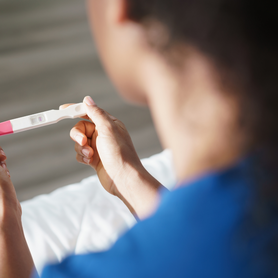|
Teenage girls in foster care are more than twice as likely to become pregnant as their peers not in care. In fact, 71% of young women who have been in foster care will be pregnant by age 21, and those who become pregnant before age 19 are increasingly likely to experience a second pregnancy - again before age 19.
These are startling statistics, even more so when you consider the educational and thus career outcomes for teen mothers. Only 2% of teen mothers graduate from college. Prior to that, only 40% graduate from high school. Youth in foster care have similarly grim outcomes, with 3% of young people who have been in care earning a bachelor’s degree. Imagine what that percentage looks like when discussing specifically teen mothers in foster care. Preventing teen pregnancy for young women in foster care is multifaceted. It requires - among other things - access to quality and consistent sex education as well as quality and consistent health care, and the youth in foster care must feel as if they have a support system they can turn to without judgment. But prevention isn’t the only area that requires better services and resources. The teenagers who become pregnant deserve access to the healthcare they want and require. Those who become mothers should be afforded the opportunities to complete their education and find careers that enable them to support their family. At the R.J. Leonard Foundation, we are proud to be one such resource for young people in foster care, many of whom are young mothers. If you would like to be a part of helping these ever-impressive young people defy the statistics, contact us here.
0 Comments
Leave a Reply. |
Categories
All
Archives
July 2024
|
|
1097 Street Road
New Hope, PA 18938 |


 RSS Feed
RSS Feed
